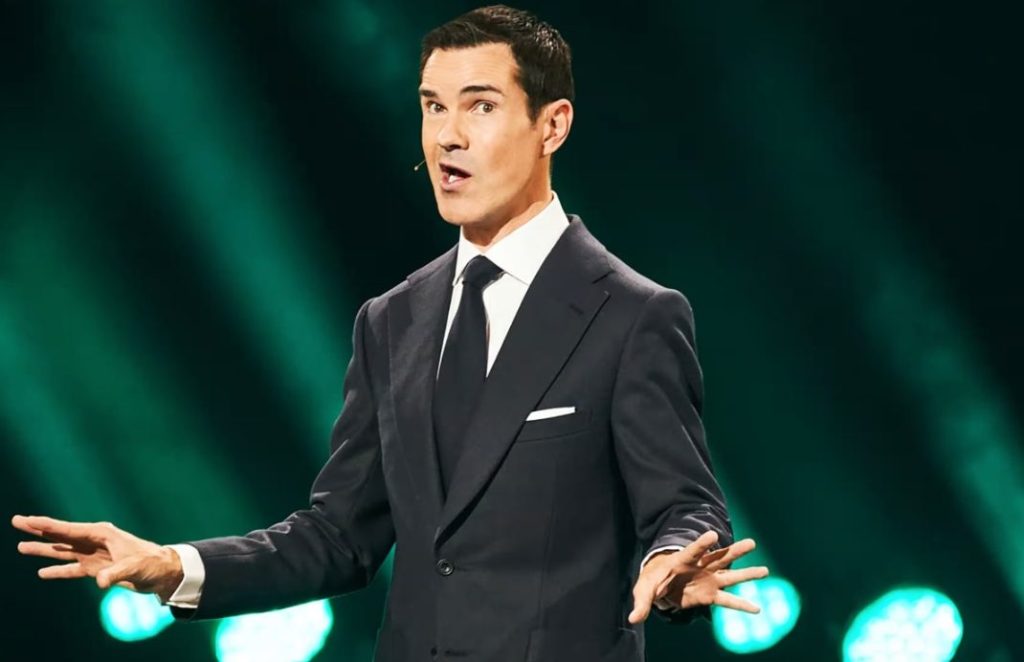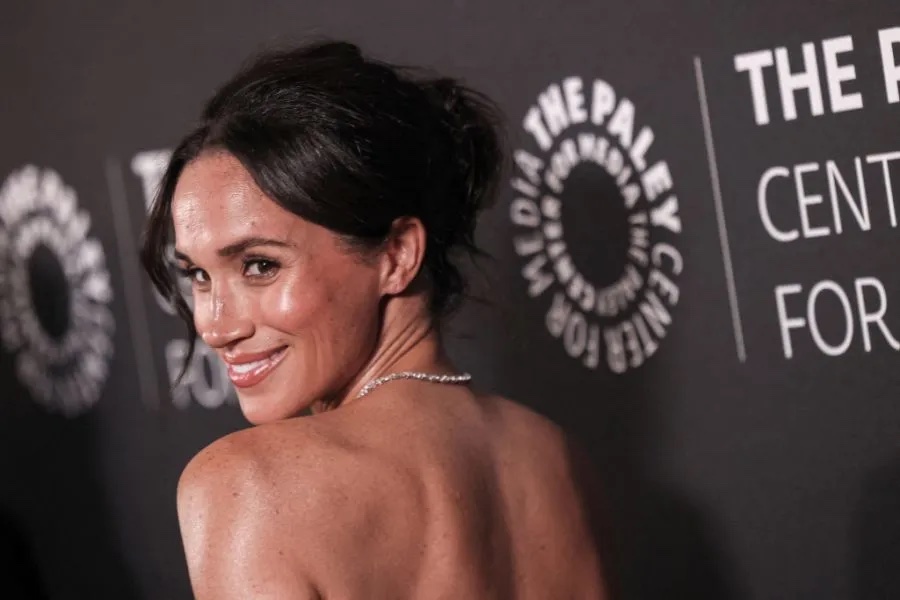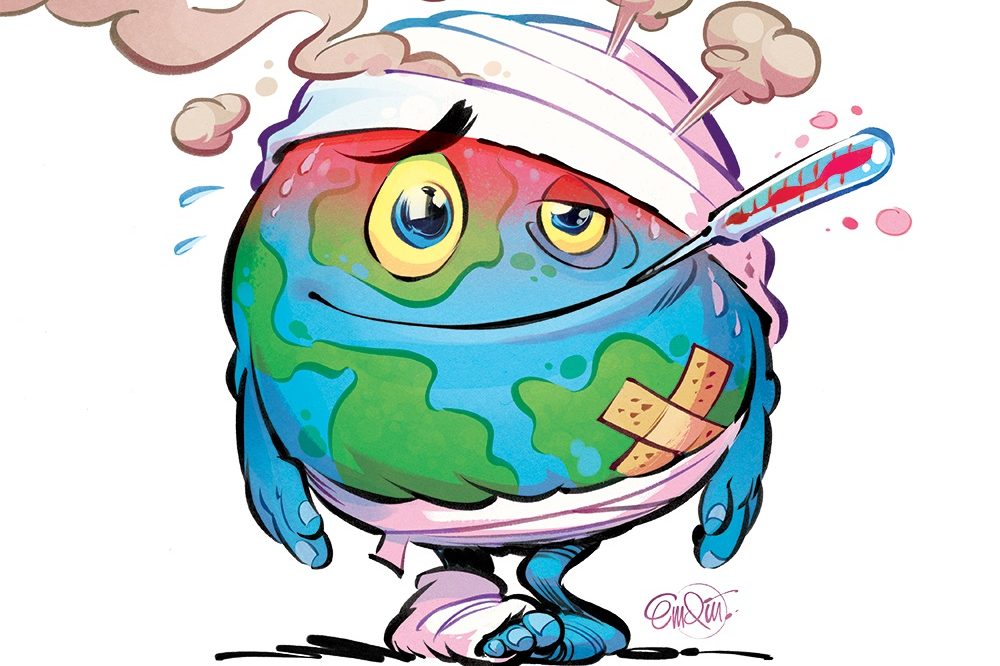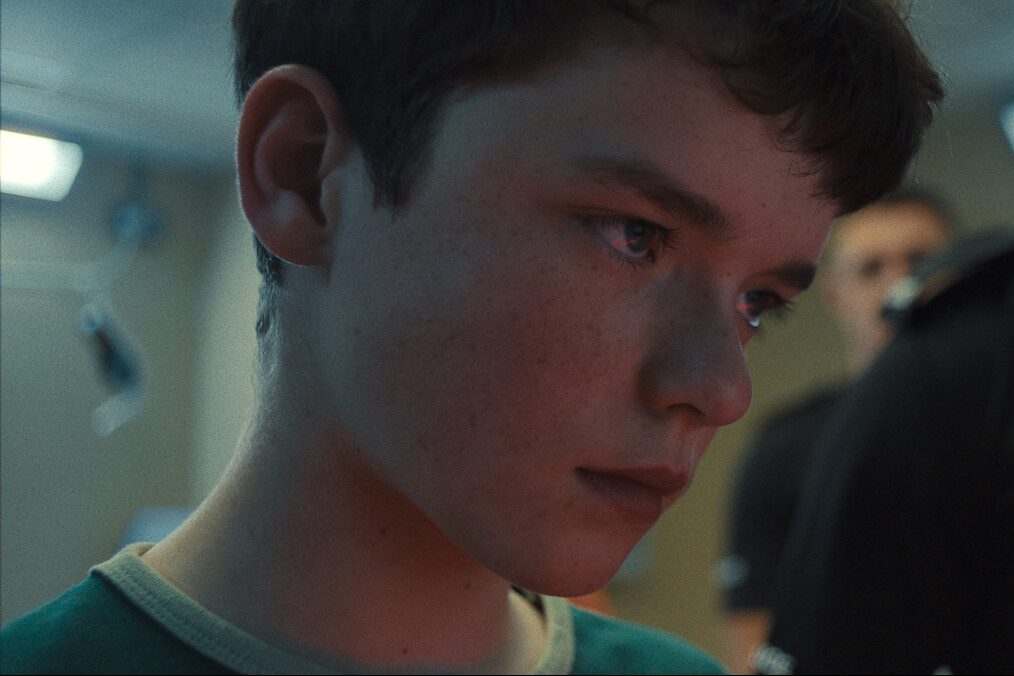Here’s an offensive joke: “Jimmy Carr gets paid to do a Netflix special.” All right, it’s not original — I nicked it from an online chat forum. And it’s not especially funny. But unlike any of the sordid, ugly, threadbare material in Carr’s excruciating set, it does at least contain a measure of critical insight.
Carr vauntingly lists all the “did he really go there?” topics he plans to cover: “child abuse, domestic violence, abortion, murder, gun control and trans issues.” But his treatment of these subjects doesn’t feel refreshingly transgressive so much as gratuitously unpleasant. Here’s a sample: “Climate change is like my niece. It’s getting hotter every year.” Then, having milked the first bout of uncomfortable titters, he adds: “It’s not as bad as you think. She’ll be six next month.”
Carr’s live audience, you sense, feel slightly embarrassed. Their laughter sounds forced
His live audience, you sense, feel slightly embarrassed. Their laughter sounds the forced sort you put on desperately to reassure yourself that this expensive evening out you paid for wasn’t a total waste of money. Even Carr looks ill at ease. As well as swearing a lot more than he used to, his eyes dart from side to side (like the “Awkward Look Monkey” in the popular meme), and he laughs rather too often at his own horrible, sordid jokes. Where once he resembled a wittily deadpan undertaker, he’s now starting to look as pale, drawn and sinister as the contents of the coffin.
If this sounds cruel or unfair, consider for a moment those braver, funnier, much poorer comics — unapologetically Christian comedian Alistair Williams, say — who’ll never get a lucrative Netflix special because they won’t sell their souls to the establishment. There is nothing edgy or outspoken or “stick it to The Man” about having a go — as Carr does — at “anti-vaxxers.” Nor is it daring to make sick, gloating jokes about male sexual violence.
Carr’s problem is not his choice of subject: even sexual depravity can yield comedy gold, as Dave Chapelle memorably demonstrated with his Macaulay Culkin jokes on his last Netflix special. Rather, it’s that his creepy, leering persona is discomfiting, and there’s nary a hint of that shared sense of recognition which makes the best comedy so illuminating and communally satisfying. “I don’t like having sex outdoors. But that is where women walk at night,” quips Carr. “How true, how hilariously true!,” muses not a single male in his politely laughing but inwardly squirming audience.
Baby Reindeer is a decidedly odd but undoubtedly original series, expanded from a hit Edinburgh Fringe show based on the author and comedian Richard Gadd’s true-life experience of being stalked for six months by a psychotic older woman.
Donny — as Gadd fictionalizes himself — is working in a bar at the time, while trying to support himself as a struggling, not-that-funny stand up. In walks a shy, mousy, overweight woman whom he treats to a free cup of tea because he feels so sorry for her. Fatal error. Martha mistakes this, in her warped imagination, for a sexual overture. And the weird, needy and often grotesquely explicit text messages begin.
Martha is quite superbly played by Jessica Gunning who captures, both movingly and disturbingly, her character’s repellant allure: a terrifying, devious and vengeful bunny boiler, sure, but also someone almost endearingly vulnerable, mercurial, sweet, amusing, tender and supportive. When Donny is dying on his feet at one of his awful stand-up sets, for example, it’s Martha’s infectious giggles and banter that win the audience round and turn disaster into triumph.
Even so, it’s hard not to keep asking yourself, as you sit watching Donny’s life spiral ever deeper into hell, “Why am I putting myself through this ordeal?” Yes, it’s all very interesting in a slow-motion-car-crash kind of way, but it’s seriously weird and it’s quite hard to grapple with Donny’s psychology. I mean, if you were in that situation, would your first instincts really be to seek solace with someone you’d decided to hook up with on a dating app? And, on finding that your pursuer had already served a prison sentence for stalking, wouldn’t you call in the police at that point rather than letting the horror drag on for many months more?
By the time you’ve finished the dark, debauched, painfully believable fourth episode, it will all start to make sense. Yes, it can be excruciating but it is also masochistically addictive. So in a way, as a viewer, your experience mirrors that of Gadd. You desperately want it all to stop but can’t quite bring yourself to press the off button. And you’d be right not to do so: this is a masterpiece.
This article was originally published in The Spectator’s UK magazine. Subscribe to the World edition here.


























Leave a Reply